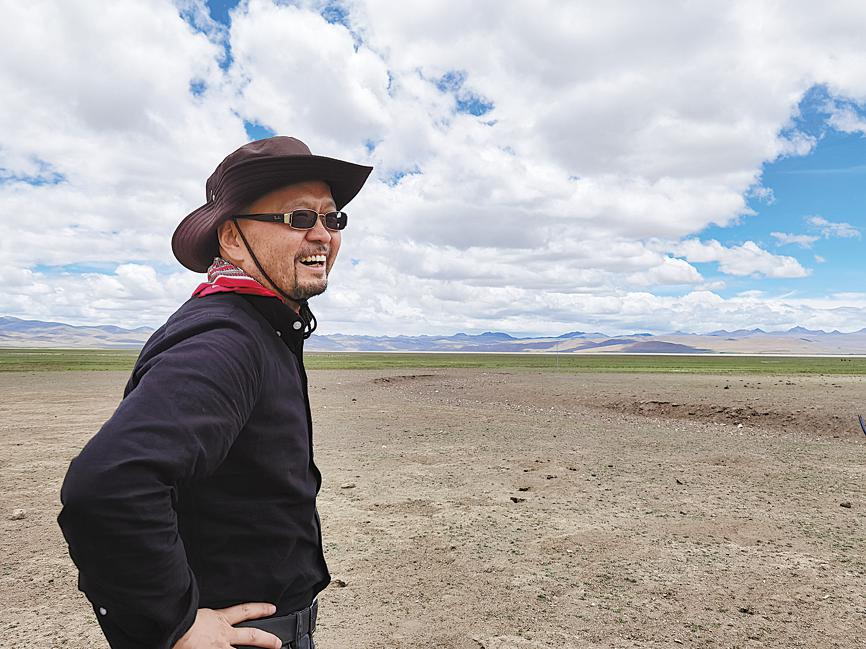

To prepare for the film, Lu read Xizang Transformed, a book by Polish-born journalist Israel Epstein who was a non-Chinese member of the CPC, before visiting some historical sites, such as Phalha Manor in Gyalze county, one of Tibet's largest and best-preserved noble families' residences.
Lu and his team also interviewed many people, including Buda's wife and five children.
Lu wrote the film's script-spanning from the early 1930s to 2005-with scenarios unfolding in two parallel lines to shift between the past and present.
"I heard a moving story that over decades Buda's wife had waited for him at the entrance of their village when Buda went to work," says Lu, adding that it inspired him to create more details about the couple's romance in the film.
With an impressive contrast from his last trip to Xizang in the 1990s, Lu says he was amazed to see the changes in the region.
"Most of the roads outside Lhasa's airport were dirt roads. But now there are highways. It was difficult to find restaurants or stores in the 1990s, but now you can see a variety of foreign brands in the Barkhor Bazaar area."
In an effort to reflect such changes, the film unfolds with a scene featuring the completion ceremony of a section of Qinghai-Xizang Railway, the world's highest railroad.